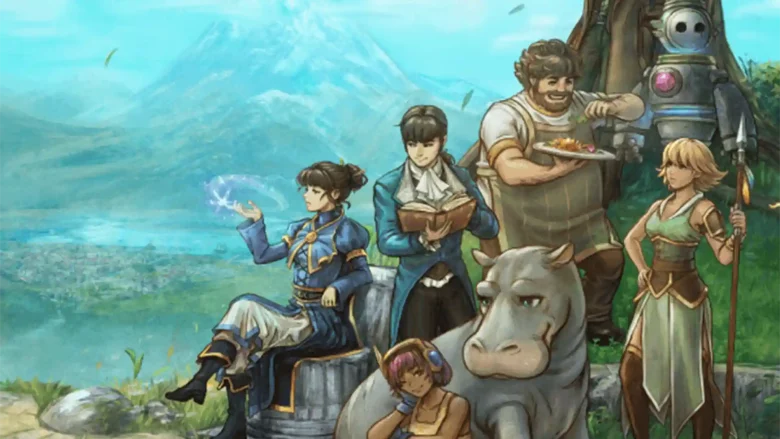When life is truly doing its best to give me a good kicking, there’s nothing I’d rather do than retreat into a classic turn-based RPG. Something about that strategic combat coupled with an engaging story is what I need to unwind, and over the years countless titles have been the light needed to overcome money worries and housing woes. It’s the magical power of this great medium that it can carry some of the load and force you to crack a smile when needed, and I unfortunately found myself in the position of needing a cheeky boost over the last week. Quartet was the replacement shot of adrenaline, absinthe, or street drug of choice my body needed to kickstart it, and if you’re a lover of the genre it’s well worth jumping into.
The main hook of Quartet is that it doesn’t tell one story, it tells four. At the start of the game (after a short intro section) you’ll be given the choice of four characters to play through the story of, and each of them is totally different. Once you’ve completed one of the stories you’ll be invited to pick another, and so on until you’ve experienced the lot. I opted to play as a chef called Ben first, who wasn’t having much fun in his dead end job.
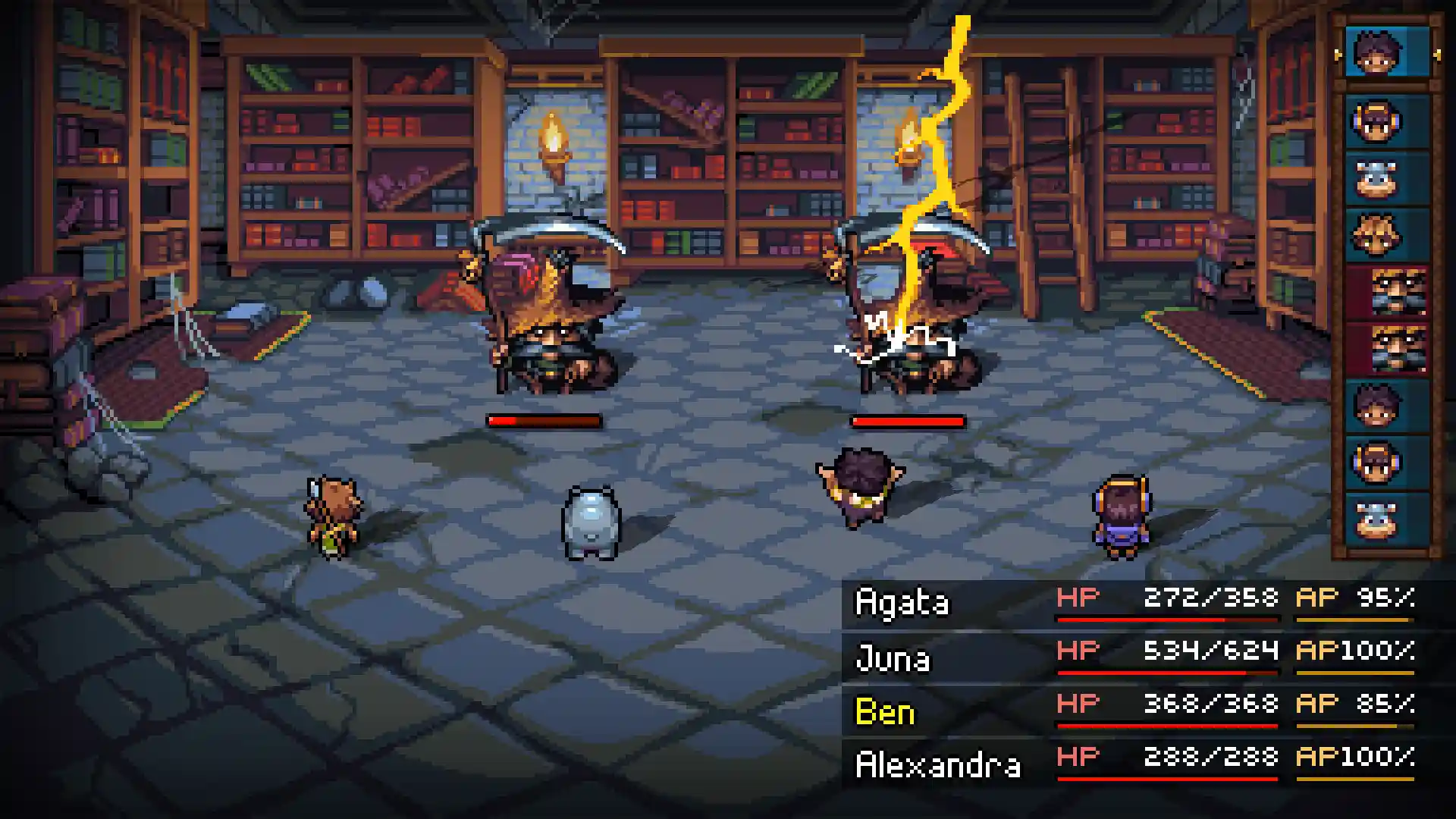
Ben is your typical down on his luck fella struggling to pay rent, when an unfortunate encounter with some less savoury characters awakens the magic within him. Now with a new way to potentially make a bit of cash, this cheeky chap sets off searching for odd jobs he can do with his powers and gets in a few scrapes along the way. The writing is incredibly charming as you learn more about this potential hero, and even got a few chuckles out of me.
You might not opt to play as Ben first though. Maybe you’d rather experience the tale of Nikolai, a general in an army at war, who is asked to do some slightly less savoury things in the name of victory. Or magical student Cordelia who is top of the class until an incident from the past forces her on a wild west adventure. Perhaps the best of the bunch is the story of the shopkeeper Alexandra who is desperately working to make money for medical care for her mum, and has to question what she’s willing to do for her family.
What’s most impressive about these four chapters of Quartet is just how different they are, in terms of tone and even the combat itself. It makes essentially restarting with new low level characters every two hours feel much less painful, although depending on the order you tackle the stories in you’ll maybe not appreciate the pacing of learning basic magic when you’re six hours deep.
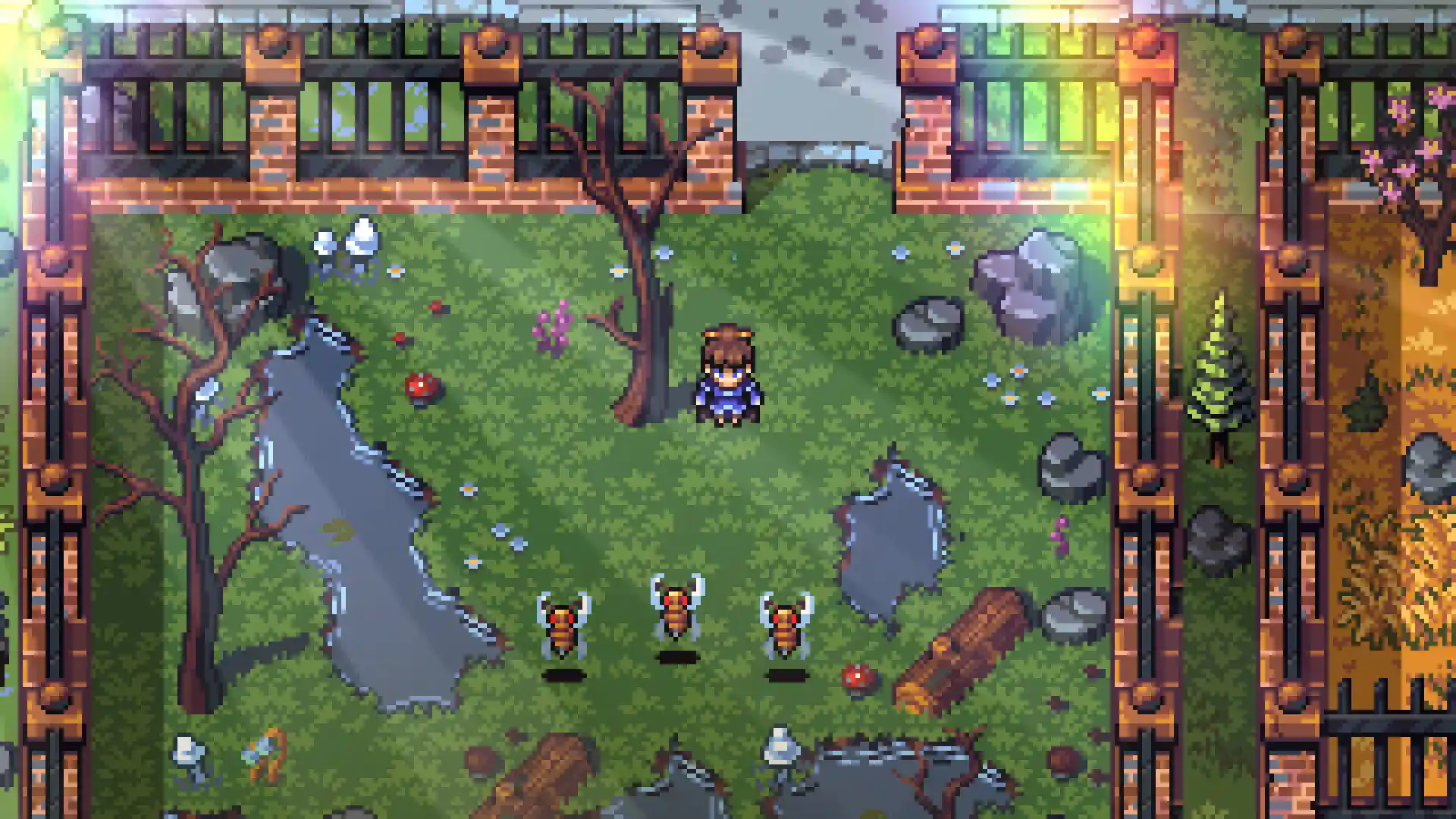
In terms of combat Quartet is fairly straightforward, but seriously compelling nonetheless. You’ll have up to four party members in battle at a time, and each of them will have different weapons types they can attack with alongside a variety of skills. You can buff your stats in tough combat encounters, heal when needed, and of course take advantage of weaknesses to deal massive damage.
I thought I’d seen everything that Quartet had to offer after finishing the four chapters and enjoying the tales of these magical individuals and their trials and tribulations, but once you get past this introduction the game really opens up. Eventually you’ll find reasons to get the whole gang together, and will have a massive party of various familiar character archetypes to use in battle. If you’re worried about the game ending quickly after you’ve got to know everyone then don’t, because the best is yet to come.
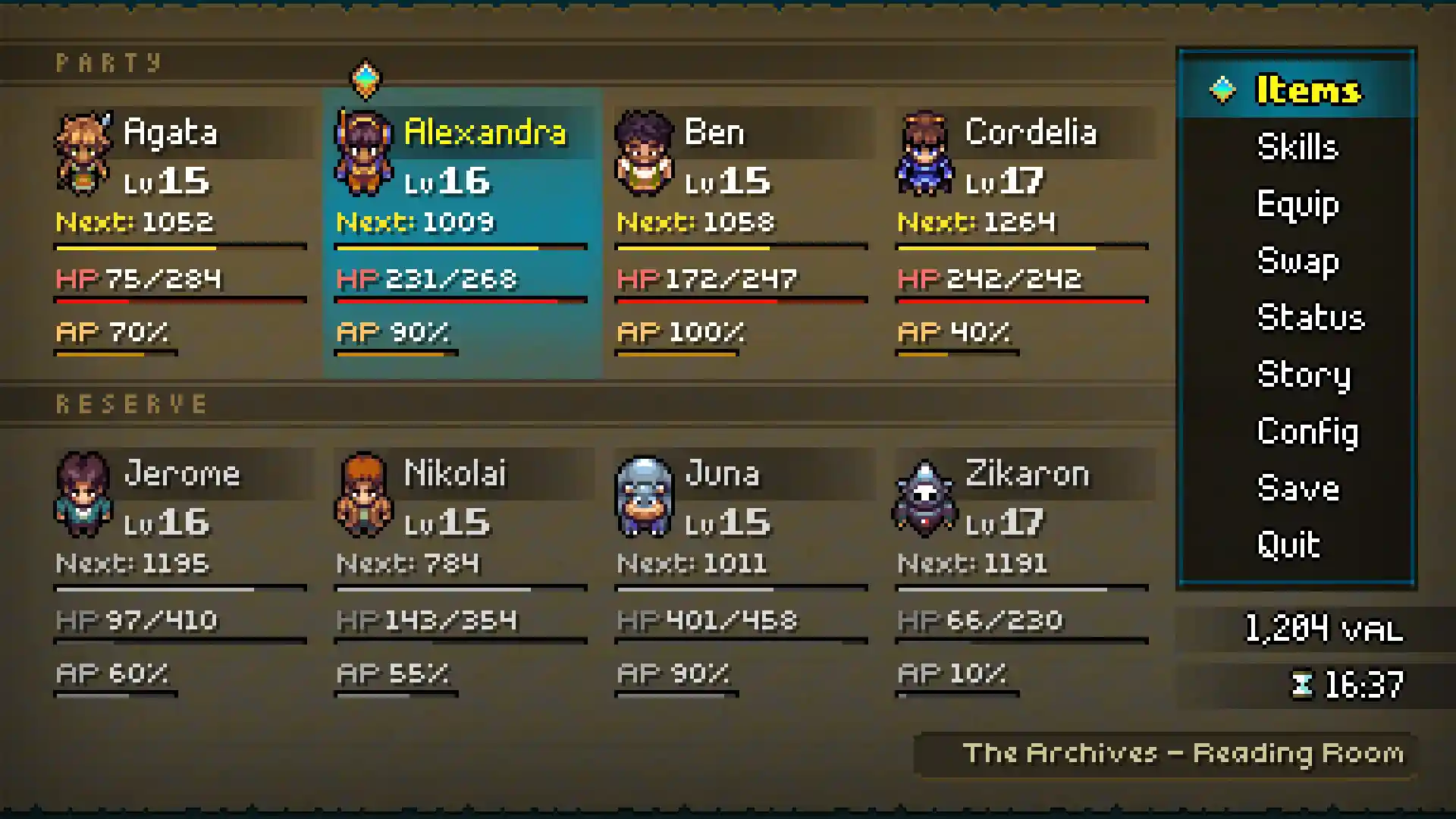
Combat is at its best here too, not only because you’ll have a lot of options but because you can switch who you’re using in battle at a moment’s notice. Anyone from your reserves can be swapped in and immediately take an action, so you can always ensure the best person (or hippo) for the job is there to cast a spell. This is helpful defensively too, because if you’ve got a weak character you can just switch them out for a healthy one without being punished at all.
One aspect of Quartet I do want to specifically shout-out is how perfectly structured it is. For the most part it’s very linear, but this ensures the story focus is kept consistent throughout. There’s also not any random battles or even really repeatable battles, and instead you’ll just face monsters blocking the path at specific points that are perfectly tailored for the current party. This means the difficulty always feels fair too, and you don’t just get bodied by bosses because you need to go and level up.
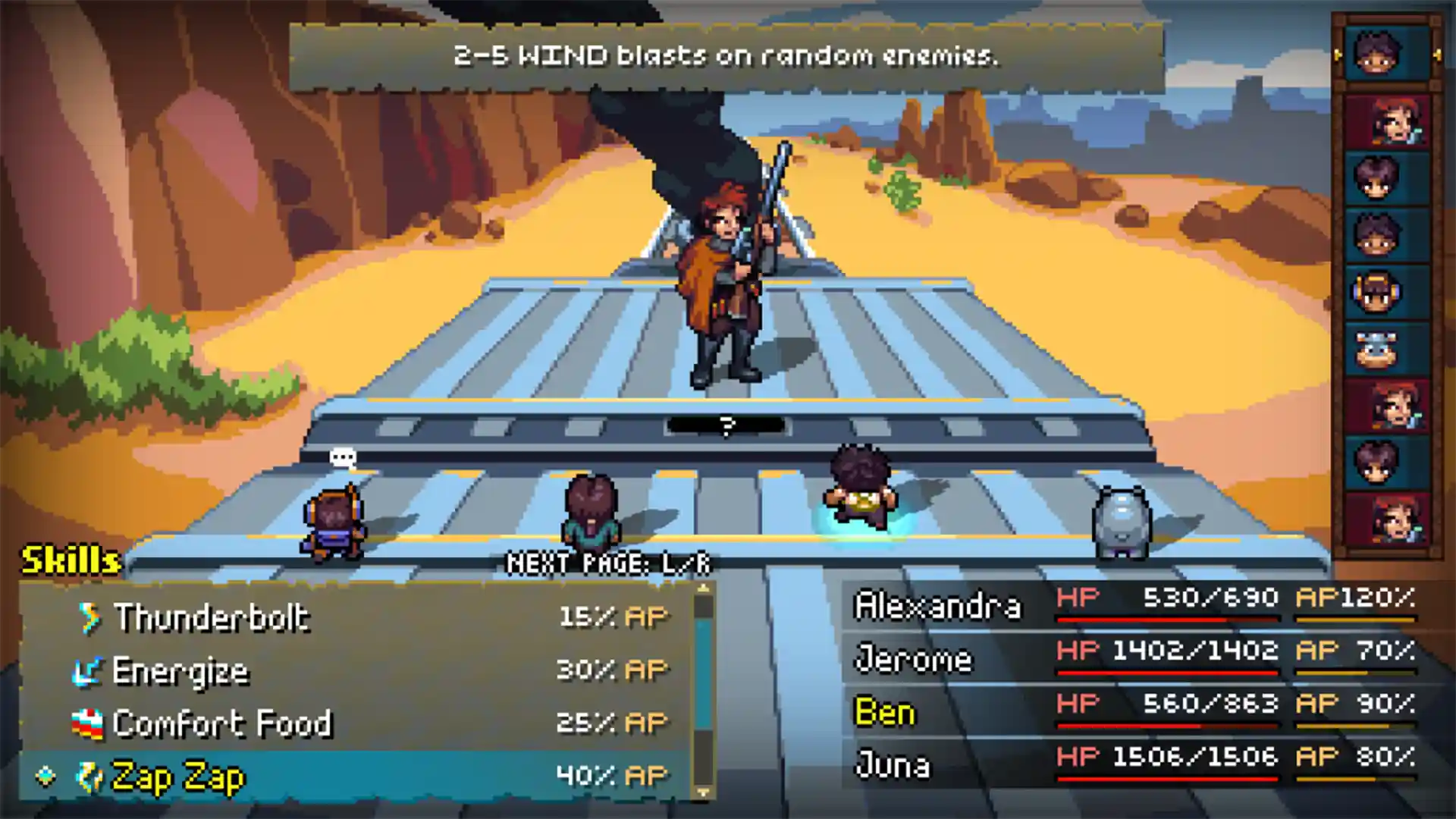
I had a wonderful time with Quartet, but a couple of things prevent it from reaching the very tippity top of the RPG ladder. The combat, while entertaining, doesn’t really do anything you haven’t seen before, and especially early on it’s just a bit lacking. The visuals are in a similar boat here too, and with so many gorgeous indie RPGs out there it stands out as a very basic looking game. This also means that it’s hard to tell environments apart, and when playing as all the new characters there were multiple times I thought I was in a familiar location because it looked identical to the last city.
Quartet is a very traditional turn-based RPG, with wonderful writing and perfect pacing. Its combat, although familiar feeling is a lot of fun, and swapping between characters and locations keeps the experience fresh in those early hours. To call it a warm hug of an RPG would be an understatement, and I was happy to live in its bubble for as long as it would have me.
